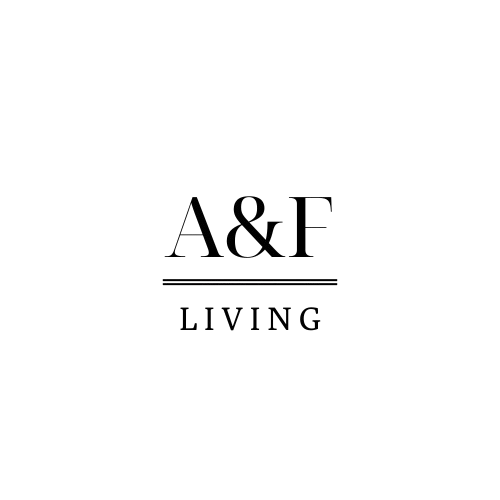FAQ
- Home
- FAQ
Frequently Asked Questions
Maecenas quis viverra metus, et efficitur ligula. Nam congue augue et ex congue, sed luctus lectus congue. Integer convallis condimentum sem. Duis elementum tortor eget condimentum tempor. Praesent sollicitudin lectus ut pharetra pulvinar. Donec et libero ligula. Vivamus semper at orci at placerat.Placeat Lorem ipsum dolor sit amet, consectetur adipisicing elit. Quod libero amet, laborum qui nulla quae alias tempora.
Maecenas quis viverra metus, et efficitur ligula. Nam congue augue et ex congue, sed luctus lectus congue. Integer convallis condimentum sem. Duis elementum tortor eget condimentum tempor. Praesent sollicitudin lectus ut pharetra pulvinar. Donec et libero ligula. Vivamus semper at orci at placerat.Placeat Lorem ipsum dolor sit amet, consectetur adipisicing elit. Quod libero amet, laborum qui nulla quae alias tempora.
Maecenas quis viverra metus, et efficitur ligula. Nam congue augue et ex congue, sed luctus lectus congue. Integer convallis condimentum sem. Duis elementum tortor eget condimentum tempor. Praesent sollicitudin lectus ut pharetra pulvinar. Donec et libero ligula. Vivamus semper at orci at placerat.Placeat Lorem ipsum dolor sit amet, consectetur adipisicing elit. Quod libero amet, laborum qui nulla quae alias tempora.
Maecenas quis viverra metus, et efficitur ligula. Nam congue augue et ex congue, sed luctus lectus congue. Integer convallis condimentum sem. Duis elementum tortor eget condimentum tempor. Praesent sollicitudin lectus ut pharetra pulvinar. Donec et libero ligula. Vivamus semper at orci at placerat.Placeat Lorem ipsum dolor sit amet, consectetur adipisicing elit. Quod libero amet, laborum qui nulla quae alias tempora.
Maecenas quis viverra metus, et efficitur ligula. Nam congue augue et ex congue, sed luctus lectus congue. Integer convallis condimentum sem. Duis elementum tortor eget condimentum tempor. Praesent sollicitudin lectus ut pharetra pulvinar. Donec et libero ligula. Vivamus semper at orci at placerat.Placeat Lorem ipsum dolor sit amet, consectetur adipisicing elit. Quod libero amet, laborum qui nulla quae alias tempora.
Maecenas quis viverra metus, et efficitur ligula. Nam congue augue et ex congue, sed luctus lectus congue. Integer convallis condimentum sem. Duis elementum tortor eget condimentum tempor. Praesent sollicitudin lectus ut pharetra pulvinar. Donec et libero ligula. Vivamus semper at orci at placerat.Placeat Lorem ipsum dolor sit amet, consectetur adipisicing elit. Quod libero amet, laborum qui nulla quae alias tempora.
Maecenas quis viverra metus, et efficitur ligula. Nam congue augue et ex congue, sed luctus lectus congue. Integer convallis condimentum sem. Duis elementum tortor eget condimentum tempor. Praesent sollicitudin lectus ut pharetra pulvinar. Donec et libero ligula. Vivamus semper at orci at placerat.Placeat Lorem ipsum dolor sit amet, consectetur adipisicing elit. Quod libero amet, laborum qui nulla quae alias tempora.
Maecenas quis viverra metus, et efficitur ligula. Nam congue augue et ex congue, sed luctus lectus congue. Integer convallis condimentum sem. Duis elementum tortor eget condimentum tempor. Praesent sollicitudin lectus ut pharetra pulvinar. Donec et libero ligula. Vivamus semper at orci at placerat.Placeat Lorem ipsum dolor sit amet, consectetur adipisicing elit. Quod libero amet, laborum qui nulla quae alias tempora.
Maecenas quis viverra metus, et efficitur ligula. Nam congue augue et ex congue, sed luctus lectus congue. Integer convallis condimentum sem. Duis elementum tortor eget condimentum tempor. Praesent sollicitudin lectus ut pharetra pulvinar. Donec et libero ligula. Vivamus semper at orci at placerat.Placeat Lorem ipsum dolor sit amet, consectetur adipisicing elit. Quod libero amet, laborum qui nulla quae alias tempora.
Maecenas quis viverra metus, et efficitur ligula. Nam congue augue et ex congue, sed luctus lectus congue. Integer convallis condimentum sem. Duis elementum tortor eget condimentum tempor. Praesent sollicitudin lectus ut pharetra pulvinar. Donec et libero ligula. Vivamus semper at orci at placerat.Placeat Lorem ipsum dolor sit amet, consectetur adipisicing elit. Quod libero amet, laborum qui nulla quae alias tempora.
Become a Real Estate Agent
We only work with the best companies around the globe



